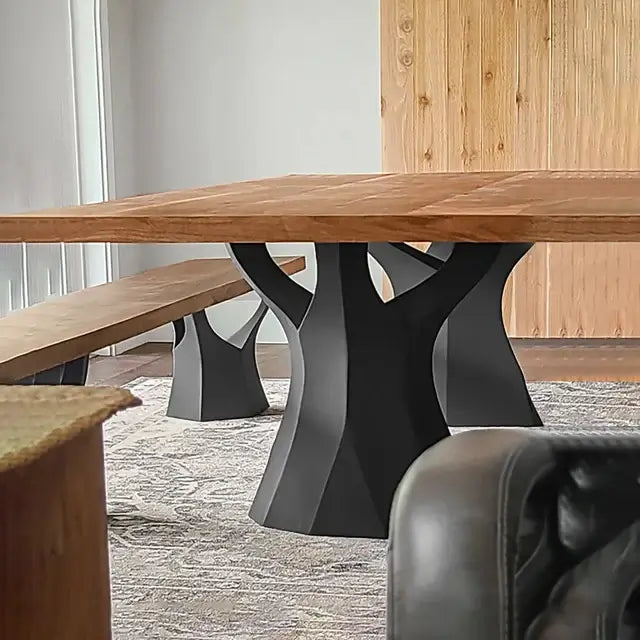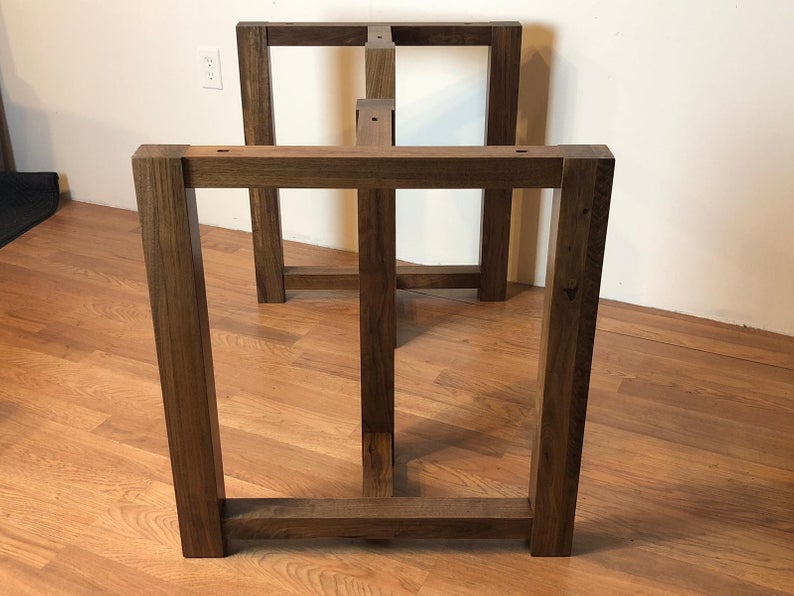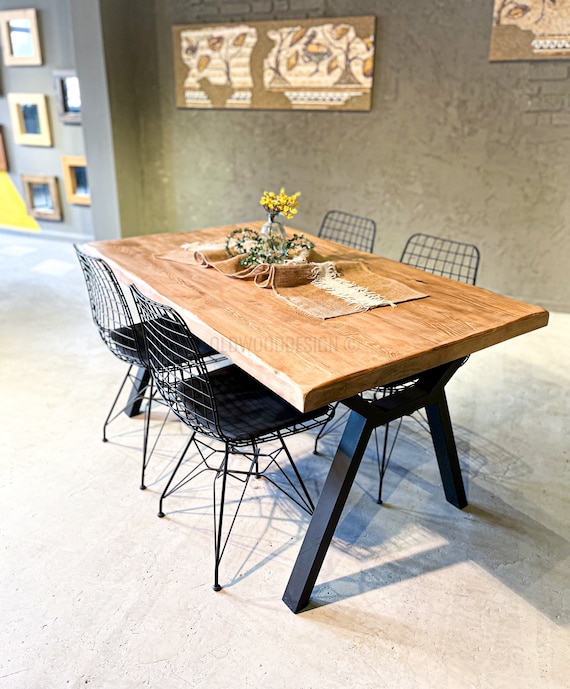Discovering the Different Kinds Of Table Legs Wood for Your Eating Area
The option of eating table legs timber can greatly impact both the aesthetic and practical qualities of your dining area. Strong timber alternatives, such as oak and walnut, offer a traditional appearance with unparalleled sturdiness, while crafted wood options supply ingenious layouts that resemble the splendor of all-natural grains.
Strong Timber Options

Unlike crafted products, strong timber is much less susceptible to warping and damage over time when correctly preserved. Each piece of solid wood is distinct, showcasing individual qualities that add to the charm and character of the eating table.
In addition, strong timber can be ended up in numerous methods, ranging from all-natural oils to stained finishes, allowing homeowners to individualize their furniture to match their decoration. In summary, choosing solid timber for eating table legs not only guarantees structural integrity however additionally improves the visual appeal of the eating location, making it a worthwhile investment for any kind of home.
Engineered Timber Alternatives

Plywood, built from several layers of timber veneer, is stable and particularly strong, making it an outstanding selection for eating table legs. Its split make-up enables it to hold up against changes in moisture and temperature better than conventional solid timber. MDF, on the other hand, offers a smooth surface for painting or veneering, allowing designers to accomplish a polished look while preserving architectural integrity.
When choosing engineered wood choices, it is vital to think about the intended usage and wanted visual. These materials not just improve the functionality of eating spaces however likewise permit for greater layout flexibility, making certain that conventional and modern designs can exist together harmoniously.
Reclaimed Timber Features
Redeemed wood provides an unique mix of sustainability and personality, making it a progressively prominent selection for dining table legs. Sourced from old barns, manufacturing facilities, and other structures, recovered wood symbolizes a history that brand-new products just can not duplicate. Each item carries its very own tale, noted by distinct imperfections, knots, and differing grain patterns, which add to a table's one-of-a-kind visual charm.
In addition to its aesthetic charm, redeemed timber is an eco-friendly option. By repurposing formerly utilized materials, it lowers the need for new lumber, hence assisting to lessen and conserve woodlands waste. This lines up with a growing customer choice for lasting practices in furniture.
Furthermore, redeemed wood is commonly much more durable than freshly gathered timber because of its age. The all-natural drying process that recovered wood undertakes lead to a denser and more powerful material, making it much less prone to warping navigate to this site and splitting. This enhances the durability of eating tables, permitting them to hold up against the rigors of daily use.
Softwood vs. Wood
When picking table legs, comprehending the distinctions in between softwood and wood is vital for accomplishing both practical and visual objectives. Softwoods, derived from coniferous trees, such as ache and cedar, are identified by their lighter weight and ease of adjustment. They generally display a more rustic appearance, making them ideal for casual or country-style dining rooms. use this link Softwoods are usually less sturdy than hardwoods, which can be a consideration for families or those looking for durability in their furnishings.
On the other hand, hardwoods, sourced from deciduous trees like oak, cherry, and maple, are renowned for their thickness, stamina, and toughness. The complex grain patterns and rich tones of woods supply a sophisticated and ageless appeal, making them excellent for formal eating setups. While woods tend to be extra expensive and much heavier, their strength against deterioration typically warrants the investment.
Inevitably, the option between softwood and wood for eating table legs ought to align with your layout vision, use requirements, and spending plan, making certain that your eating space shows your individual design while staying functional in time.

Surfaces and Therapies
The visual allure and durability of table legs can be considerably boosted through various surfaces and therapies. These procedures not only safeguard the wood from damages yet additionally elevate its appearance, enabling it to match varied indoor designs.
One typical treatment is tarnishing, which passes through the timber and improves its all-natural grain while adding shade. Spots supply a rich, stylish look, making it possible for property owners to match their furniture with existing design. Conversely, clear coatings such as polyurethane or varnish produce a protective layer without altering the timber's initial shade, ensuring toughness versus wear and tear.
Additionally, natural oils, like tung or linseed oil, nurture the wood and supply a refined shine, all while being environmentally friendly. These oils allow the surface area to take a breath, avoiding moisture accumulation and potential bending.
For those seeking a rustic charm, distressed or weather-beaten surfaces can be applied to develop an aged look, including personality to the piece. Inevitably, the option of treatments and coatings depends upon personal choice, desired aesthetics, and the particular timber type, making it necessary to think about these elements when picking table legs for your area.
Final Thought
Solid woods, engineered options, and redeemed options each offer distinct benefits, catering to various preferences and demands. Eventually, the selection of timber kind need to align with desired style, resilience, and environmental considerations, enhancing the overall dining experience.
The option of dining table legs wood can profoundly affect both the practical and aesthetic high qualities of your dining space - Dining Table Legs Wood. Strong web link wood options, such as oak and walnut, offer a classic look with unequaled toughness, while engineered wood choices supply ingenious styles that simulate the richness of natural grains. Strong timber provides a timeless top quality that can boost the general design of an eating room. Each piece of solid timber is special, showcasing individual characteristics that include to the appeal and character of the eating table
Moreover, reclaimed timber is usually a lot more resilient than newly gathered wood due to its age.
Comments on “Discover Durable and Elegant Dining Table Legs Wood for Every Home”